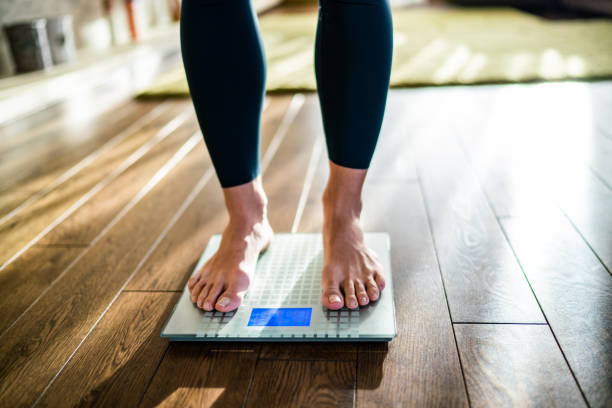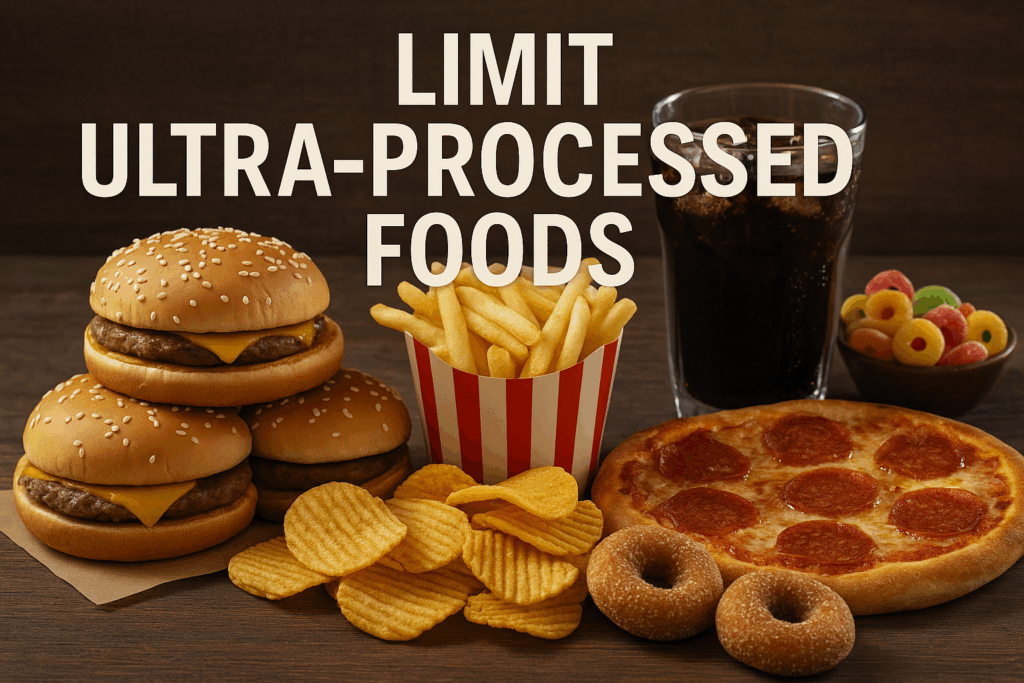Losing weight is about more than just counting calories or following fad diets. It’s about building daily habits that are realistic, sustainable, and fit your lifestyle. Here are ten effective strategies, distilled from expert advice, to help you lose weight and keep it off for good.
1. Weigh Yourself Regularly

Checking your weight most mornings keeps you accountable. It helps you spot trends early—whether you’re making progress or slipping back. Don’t stress about small daily changes; focus on the weekly average.
2. Drink More Water (and Unsweetened Tea)

Staying hydrated controls appetite and supports your metabolism. Try drinking a glass of water before each meal. If you want variety, swap in unsweetened tea. Cutting out soft drinks and sugary juices can make a big difference over time.
3. Prioritise Protein and Fibre

Lean protein (like eggs, fish, chicken, or lentils) and fibre-rich foods (vegetables, fruit, oats, whole grains) help you feel full longer and prevent overeating. Aim to include protein at every meal and load up on veggies.
4. Watch Your Portions

Most people eat more than they realise. Use smaller plates and bowls, and try the “half plate veggies, quarter protein, quarter starch” method. In restaurants, consider splitting large portions or taking half home.
5. Limit Ultra-Processed Foods

If a food comes in a box or has a long ingredient list, eat it less often. Whole foods—fresh fruit, vegetables, meat, fish, eggs, legumes, and whole grains—are better for your waistline and your health.
6. Keep a Food Diary
Writing down what you eat—either in a notebook or a phone app—helps you see patterns and spot where extra calories sneak in. Even just a week of tracking can be eye-opening.
7. Move More, Every Day

You don’t need an extreme exercise routine. Regular walking, taking the stairs, or cycling to work adds up. For best results, mix in some strength training (like lifting weights or bodyweight exercises) 2–3 times a week.
8. Plan Your Meals and Snacks

Thinking ahead helps you avoid poor choices when you’re hungry or busy. Keep healthy snacks—like nuts, yogurt, or fruit—on hand. Prepare meals in advance when possible.
9. Stop Eating Late at Night

Try to finish your last meal a few hours before bed. Eating late can disrupt sleep and increase the likelihood of mindless snacking on high-calorie foods.
10. Get Enough Sleep

Aim for 7–9 hours of quality sleep per night. Poor sleep disrupts hunger hormones and makes cravings harder to resist, often leading to weight gain.
Quick-Reference Table
Tip | Why It Works |
Weigh in regularly | Keeps you accountable and motivated |
Drink water or tea | Reduces hunger and calories |
Protein & fibre | Keeps you full, supports muscle |
Watch portions | Controls hidden calorie intake |
Limit processed foods | Reduces “empty” calories |
Keep a food diary | Increases awareness and control |
Move more | Burns calories and improves health |
Plan meals & snacks | Helps avoid impulsive eating |
No late-night eating | Prevents unneeded snacking |
Get enough sleep | Supports metabolism and reduces cravings |
Final Thoughts:
Weight loss is a journey, not a sprint. Start with the habits that seem easiest for you, and add more as you go. There’s no magic trick—just small, positive choices that add up over time.
If you’re struggling, consider reaching out to a registered dietitian or health professional for support. The PowerUp City Health team is always here to help.









Add a comment